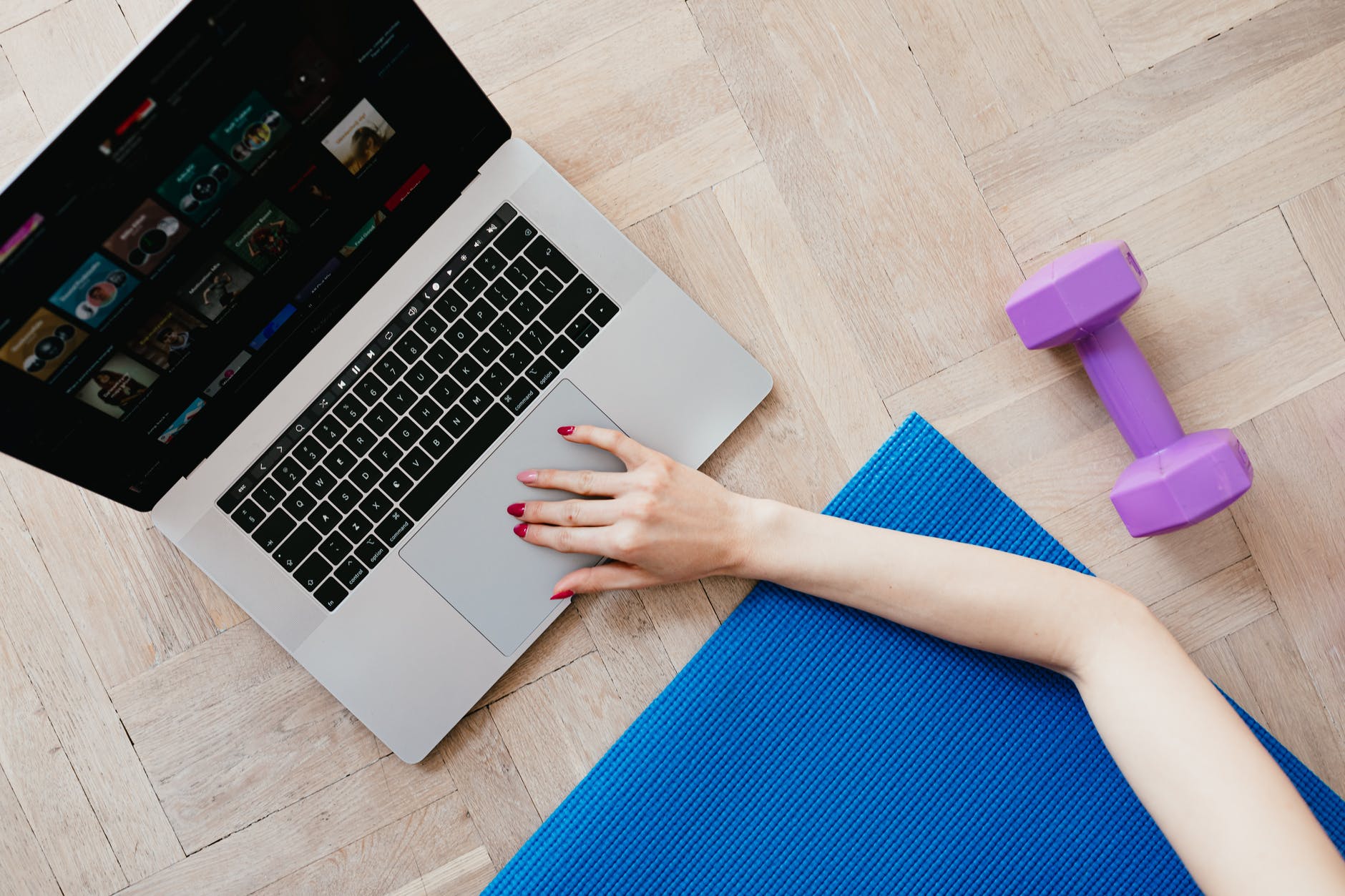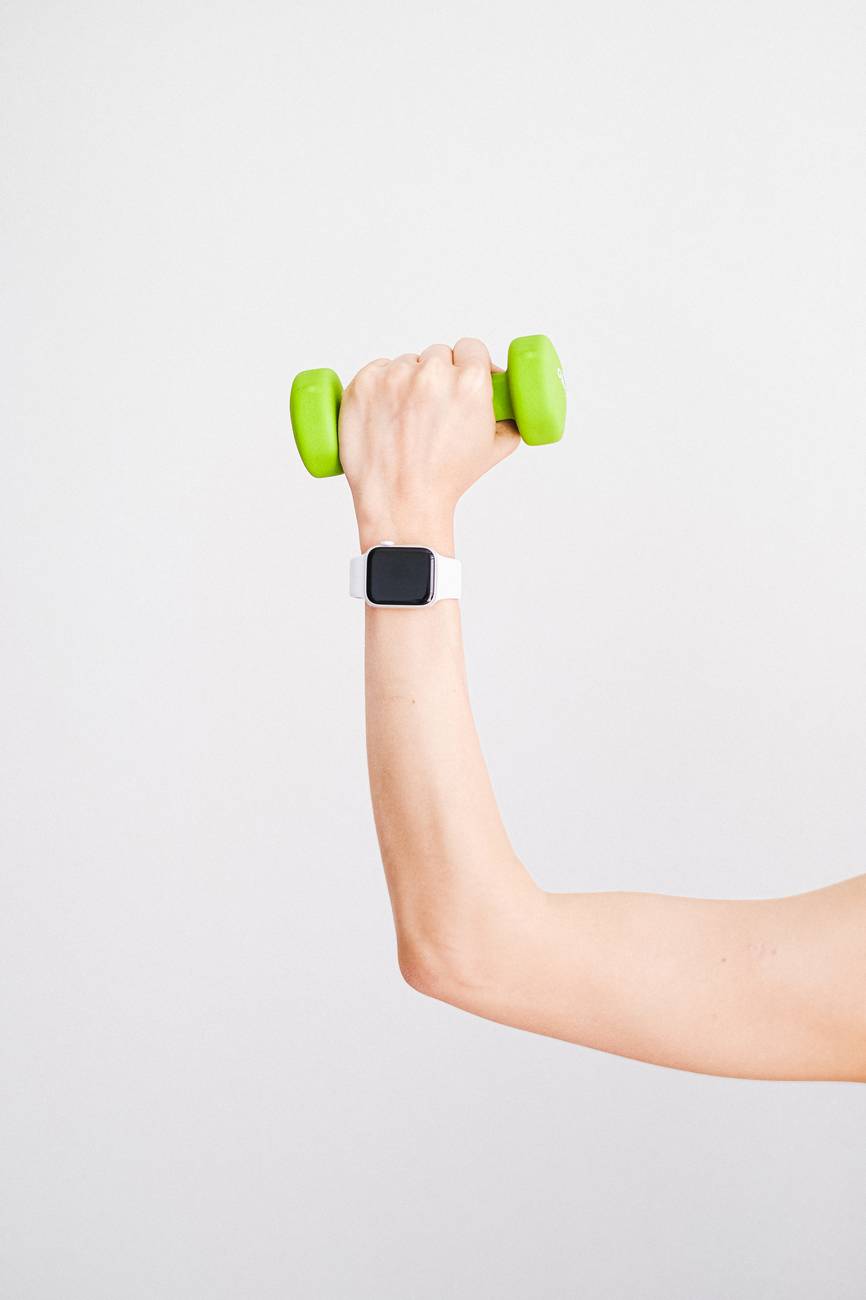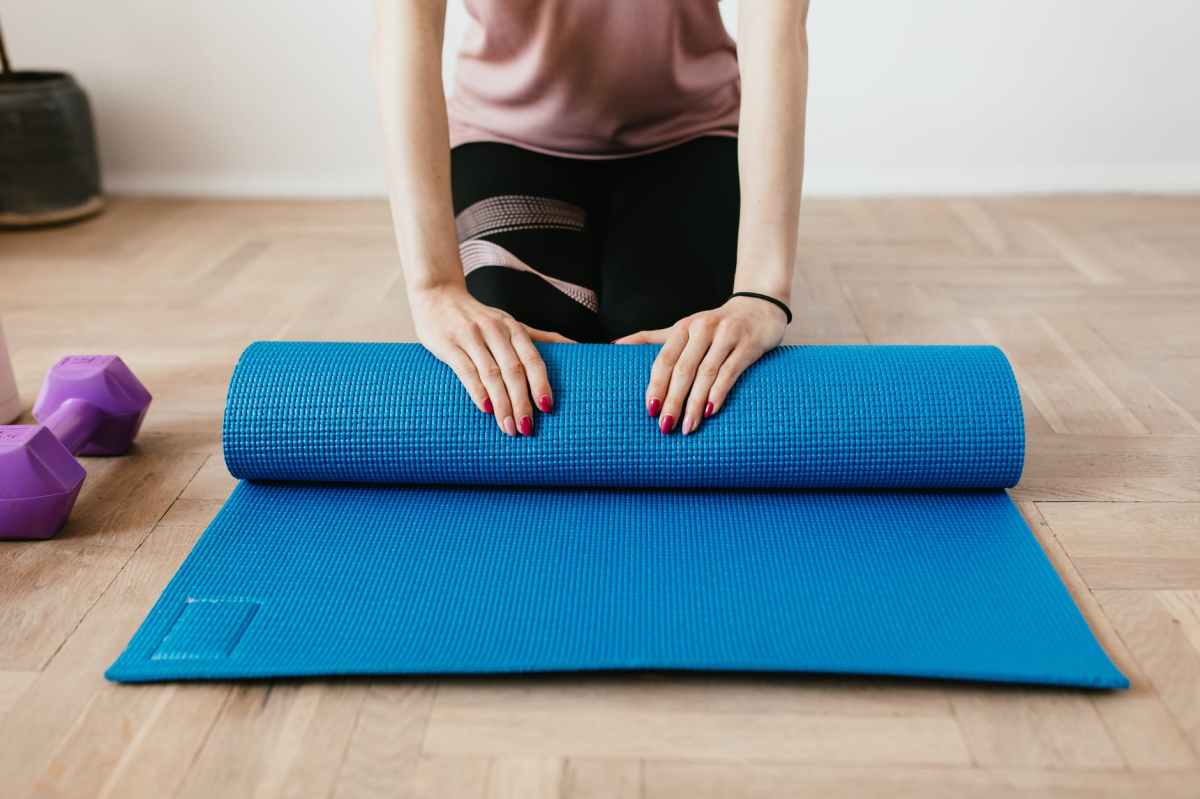Sticking to a workout routine is tough especially now that we are in the midst of a pandemic. With gyms and fitness studios closed and most of us isolating at home, it’s harder to find the time and motivation to break a sweat in the middle of working from home, taking care of the kids, or bingeing on Netflix.
But according to strength and conditioning trainer/personal coach Ergel Villarta Arcinas (@evatrainingsystems), staying at home should not be an excuse to be sedentary; rather, it’s all the more reason why we need to push ourselves to exercise. “Regular exercise not only has physical benefits, it will also help reduce the stress, anxiety, and depression that many of us will be feeling from being isolated at home and having our routines disrupted,” he explains. “The endorphins that our body releases afterwards will also leave our bodies and minds feeling refreshed instead of ‘stuck’.”

To overcome any mental barriers and make exercising a habit, you will need the right mindset and a smart approach. Below are some tips for making the most out of your workout-from-home routine:
- Make exercising the same as eating or sleeping. One often-mentioned tip for coping with home isolation is to maintain a routine — i.e. follow a regular eat, sleep, and work schedule — so include exercise in your daily to-do as well. It doesn’t matter what time of the day you do it, as long as you allot the time, although Coach Arcinas cautions against working out too close to bedtime. “This is because the resulting post-exercise energy boost can make it hard for you to fall asleep, and lack of sleep is never healthy,” he points out. “Exercising during the day will be better so that you have the rest of the day to let your body relax.” That said, if evenings are really your own free time, he suggests that you opt for low intensity movements so that you recover faster.
- Invest in a personal trainer. It may seem like added expense, but coaches ensure that you spend your exercise time mindfully and safely. “We develop workout programs that take into account your capacity, goals, and skill level,” Coach Arcinas says. “This way, you see better results sooner and reduce injuries.” Sessions can be conducted through videochat applications like Google Meet or Zoom.
If you really prefer to workout on your own by following videos online, Coach Arcinas suggests that you research the background of the instructor first to make sure that he or she is really certified to teach classes so that you do not get injured.
- Set realistic fitness goals. Don’t just aim to “be stronger;” instead, say you want to be able to do 20 full body push-ups in one minute by the end of the fourth month. When goals are measurable, specific, and time-bound, it’s easier to track your progress. Doing it this way and with the help of a personal trainer helps you focus your efforts, develop a more structured plan for actually achieving the goal, and creates a sense of urgency that can be motivating.
- Embrace the small wins. Maybe your goal is to hold a plank for two minutes, and two weeks into your new workout routine, you’ve improved your ability from 20 seconds to 30 seconds. Even though your ultimate goal is a long way off, take pride in reaching this mini milestone along the way. It can provide the important confidence boost you need to keep pushing toward the bigger goal.
- Think long-term. You didn’t get out of shape overnight, so you’re not going to instantly transform your body either. Expecting too much, too soon will only lead to frustration. Try not to be discouraged by what you can’t accomplish or how far you have to go to reach your fitness goals. Instead of obsessing over results, focus on consistency. And while the physical payoff might take longer, appreciate the instant improvements in your mood and energy levels.
- It’s totally normal to not always want to workout. It’s okay to have off days, and understanding that can help you embrace these difficult feelings and move past them, rather than viewing them as signs of weakness and giving up altogether. “If you are experiencing low energy levels because of bed weather, for example, ease into the workout by warming-up longer,” Coach Arcinas suggests. “Once your muscles are properly stimulated, you’ll be energized to proceed to the main set.” But if you really still feel sluggish after warming up and cannot proceed anymore, then that’s okay too, he assures; ten minutes of warming-up is better than five, and even just five minutes of movement is better than zero.
“However, if you are tired because you lack sleep, don’t force yourself to exercise because the risk of getting injured is higher,” Coach Arcinas says.
- Change your vocabulary. Use words with positive versus negative associations to describe how you might feel or are feeling. For example, instead of considering the difficult moments of an exercise as being “uncomfortable,” think of them as being “intense.” You are not “dying,” you are being “challenged.” Shifting your vocabulary carries a more empowering mindset and will help you adopt a more positive attitude.

- Don’t compare yourself to others. As you scroll through social media, it’s easy to feel resentful, intimidated, or even discouraged when you see someone effortlessly execute a yoga pose or consecutive burpees while you have yet to be as accomplished. But you’re likely not considering the fact that these other people were also new to yoga and burpees at one point, and probably put in a lot of hard work to get to their current fitness level.
Exercise is important to our physical and mental health, but it’s really tough to build the habit. “The key is to build the routine first before advancing to goal-setting,” says Coach Arcinas. “Once you have developed the discipline, that’s when you work with a trainer to set time-based objectives such as ‘In four to six months, I want to be able to do this skill or lose this much body fat.’”
Lastly, remember that exercising (whether at home outside of it) will always be one of the best investments you can make for your body and mind. “When you are physically and mentally well, you can do the things you enjoy more often and for far longer, like spending more time with your kids or even grandkids,” Coach Arcinas says. “For me, that benefit is even more important than having six-pack abs or being able to do 100 push-ups.”
—
Written by Jac of MindNation

